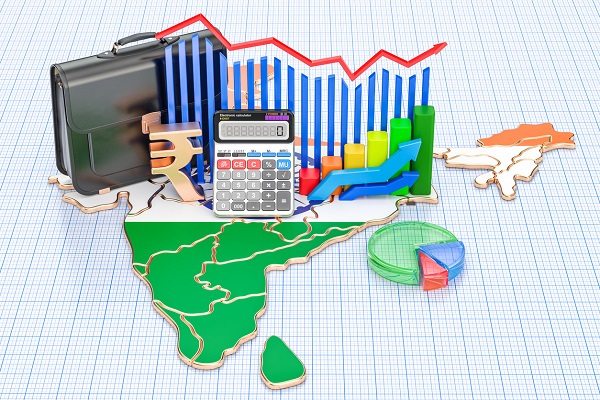.png)
The Morning Edge: Fed’s Goolsbee Urges Caution as Trade Turbulence Clouds Policy Path
A newsletter designed to prepare you for the day, offering a concise summary of overnight developments and key events ahead that could influence your workday.

April 11, 2025 at 1:18 AM IST
Chicago Fed President Austan Goolsbee struck a decidedly cautious tone on Thursday, warning that the barrage of aggressive US trade tariffs has created too much uncertainty for central bankers to commit to their next move. Speaking to the Economic Club of New York, he argued for a "wait-and-see" approach, stressing that the bar for policy shifts—whether hikes, cuts, or holds—is now higher as officials gauge how the economy absorbs the shock of soaring import costs. Though the Trump administration has dialled back some tariffs, Goolsbee noted their lingering bite could distort growth in ways monetary policy struggles to offset.
Amid wild swings in Treasury markets, the Fed official took solace in the resilience of a recent 10-year note auction, calling it proofs that US debt remains the world’s "safest asset" in times of stress. Yet his reassurance came with a caveat: the financial pain from trade tensions isn’t confined to American shores. As yields gyrate and risk appetite wavers, Goolsbee’s message was clear—the Fed won’t be rushed into action while the trade war’s fallout remains so dangerously opaque.
Data
The US consumer prices fell unexpectedly in March, marking the first monthly decline since May 2020, as lower costs for gasoline and used vehicles pulled inflation into negative territory. The Consumer Price Index dipped 0.1%, following a 0.2% rise in February, according to data released by the Labor Department on Thursday. The drop was driven largely by a sharp 6.3% fall in petrol prices, reflecting softer global demand and growing fears of economic stagnation. However, any relief from the subdued inflation reading may prove short-lived, with President Trump’s decision to double down on tariffs against Chinese imports likely to reignite cost pressures in the coming months. Food prices continued their upward trend, rising 0.4% on the month, with grocery prices up 0.5% and eggs soaring by 5.9%.
Markets
Overnight
US stocks reversed course Thursday as escalating US-China trade tensions sparked a broad selloff, with all three major indexes surrendering much of Wednesday's gains despite positive economic data and ongoing US-Europe trade talks. The S&P 500 saw nearly all sectors decline, led by sharp drops in energy and tech shares, while the "Magnificent Seven" AI stocks fell between 2.3% and 7.3%. CarMax plunged 17% after disappointing earnings, exacerbating the market's retreat as investors grew increasingly wary of the economic fallout from President Trump's expanding tariff battles. The pullback highlighted how trade concerns continue to overshadow otherwise favourable fundamentals in this volatile market environment.
US Treasury yields eased on Thursday, retracing some of the week’s sharp gains as strong demand at a 30-year bond auction helped steady nerves in a market rattled by tariff uncertainty and fears of a deepening US-China trade war. The 10-year yield dipped 1 basis point to 4.386%, while the more rate-sensitive two-year yield fell a steeper 11 basis points to 3.843%. There were also lingering concerns that a major holder—potentially China—could be reducing its exposure to US debt, further fuelling the volatility. Thursday’s solid auction, however, offered some reassurance that investor appetite remains intact, even as the broader outlook remains clouded by geopolitical and economic uncertainty.
The US dollar weakened sharply on Thursday, tumbling against major currencies and hitting a 10-year low against the Swiss franc, as markets reacted to President Donald Trump’s sudden about-face on tariffs. In a move that jolted investors, Trump rolled back sweeping duties less than a day after they were imposed, announcing a 90-day freeze on the so-called "Liberation Day" tariffs while retaining a 10% levy on most countries. The abrupt policy shift rattled confidence in US trade strategy and triggered a flight to traditional safe havens. The dollar plunged 3.89% to 0.825 against the Swiss franc, while slipping 2.07% versus the Japanese yen to 144.66. The euro also gained 2.23% on the day. The greenback’s slide underscores the market’s mounting discomfort with policy unpredictability and a growing preference for stability amid intensifying global tensions.
Brent crude oil plunged on Thursday, erasing the previous session’s gains, as investor optimism over a temporary pause in sweeping US tariffs gave way to mounting concerns about an intensifying trade war between Washington and Beijing. West Texas Intermediate crude dropped $2.28, or 3.7%, to settle at $60.07 per barrel, while Brent fell $2.15, or 3.3%, to $63.33. The market’s swift U-turn underscores the fragile mood among traders, with geopolitical tensions once again eclipsing economic fundamentals. While a momentary tariff reprieve had lifted hopes, the deepening discord between the world’s two largest economies has cast a long shadow over demand expectations, leaving oil vulnerable to further volatility.
Day’s Ledger
Economic Data:
- India mutual fund March data
- India February industrial production data
- India weekly FX reserve data
- US weekly jobless claims data
- US Baker Hughes oil rig count data
Corporate Actions:
- RACL Geartech to consider fund raising
- Silgo Retail to consider fund raising
- Mangal Credit and Fincorp to consider fund raising
- Orient Cement to consider earnings and dividend
Policy:
- US FOMC Member Williams speaks
- ECB President Lagarde speaks
Tickers
- Anand Rathi Wealth ends FY25 with 33% jump in profit, announces leadership change
- Aurobindo Pharma’s Biosimilar Denosumab BP16 meets primary endpoints in phase 1 study
- BHEL Partners Nuovo Pignone for compressor revamp projects in fertiliser sector
- Biocon Biologics gets US FDA nod for cancer biosimilar Jobevne
- CG Power gets partial relief on ₹2.48 billion tax demand
- Coromandel Signs MoU with Ma’aden for Long-Term Fertiliser Supply
- GAIL nears completion of Urja Ganga gas pipeline
- Granules India completes acquisition of Swiss peptide maker Senn Chemicals
- Hindustan Copper restarts ore production at Kolihan mine
- Infosys extends partnership with AIB to support tech transformation
- ITI Begins Work on BharatNet Phase-III ops centre in Himachal Pradesh
- LT Foods unit receives ₹2.65 bln from Oriental Insurance as per SC order
- Govt Sells 3.61% Stake in Mazagon Dock via Offer for Sale
- NBCC nets ₹15 billion from Aspire Dream Valley home sales
- Olectra Greentech wins ₹4.2 billion order from Himachal transport body
- RITES Signs MoU with DP World to explore logistics, infrastructure projects
- Supreme Court upholds tribunal order favouring RIL in naphtha duty case
- Tata Steel Nederland to cut 1,600 jobs as part of IJmuiden reorganisation
Must Read
- Govt delays security testing requirements for broadband gears amid US pressure
- Monsoon data must be local, actionable
- TCS defers salary hikes amid global uncertainty, US tariff concerns
- India's untapped data goldmine is a key strategic asset for India
- Bonds are like lemon water, good in all seasons
- US targets China oil storage terminal in new Iran-related sanctions
- Indian Startup Unveils System to Run AI Without Advanced Chips
- Trump tariff pause does not change fundamentals for a Fed that sees risks ahead
- Capgemini in Advanced Talks to Acquire WNS
- US Bank Regulator Didn’t Have Safeguard on Hacked Email Account



